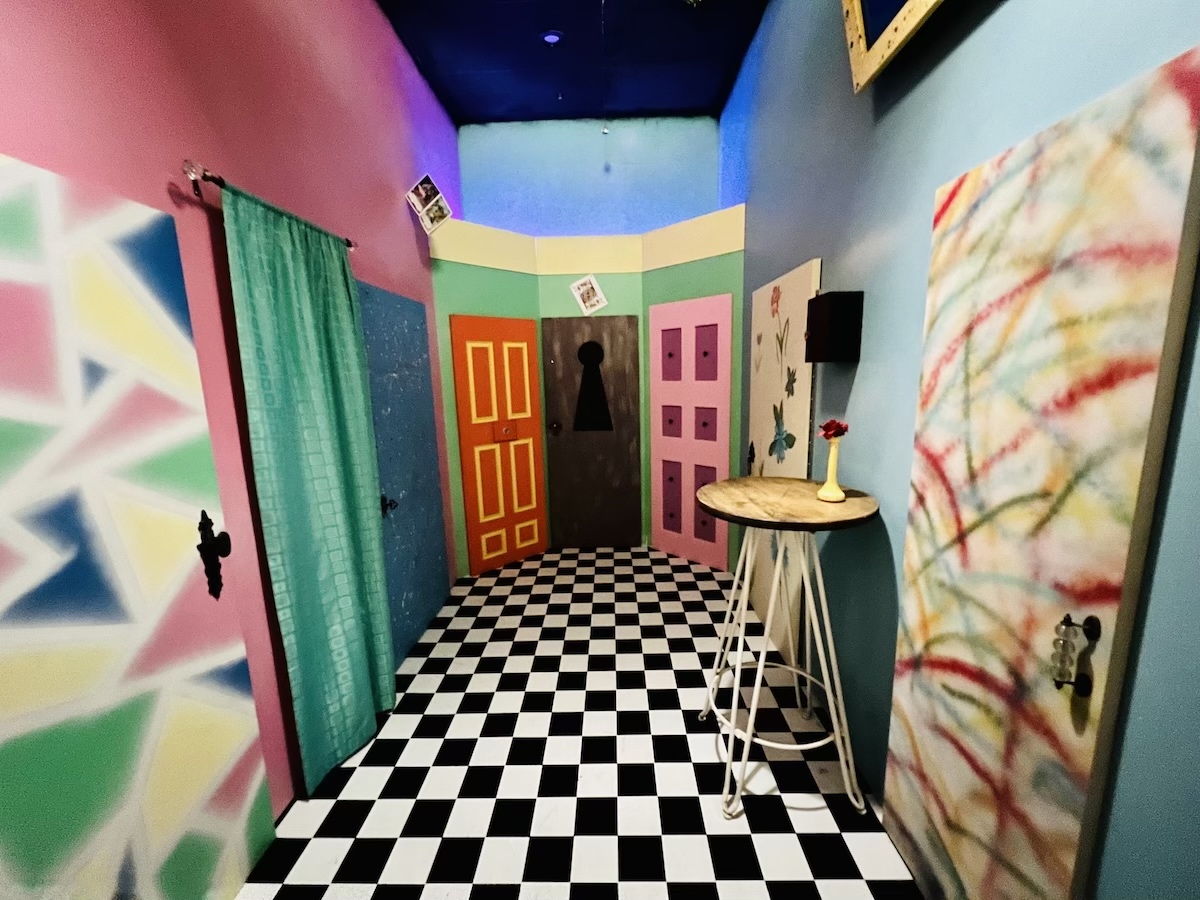Explore Why Escape Rooms Are Enjoyable and Offer an Unique Means to Bond With Buddies and Family
Escape spaces have actually arised as a captivating form of enjoyment, supplying a mix of immersive storytelling and mental stimulation that is both difficult and satisfying. What exactly sets getaway spaces apart as a bonding experience?

Immersive Narration
While the concept of retreat rooms may originally seem simple, it is the immersive narration that really establishes them apart. These experiences are meticulously created to transport participants right into another world, weaving engaging stories that captivate and engage. From the moment players enter the room, they are covered in a meticulously crafted atmosphere, total with complex information, audio results, and thematic elements that serve to improve the story.
Each retreat space features a distinct story, usually involving a mission or secret that individuals need to address within a set timeframe. The storyline is not merely a backdrop however is important to the experience, affecting the layout of problems and the format of the area. This narrative-driven approach guarantees that every aspect, from the hints to the design, adds to the unraveling story, producing a cohesive and immersive atmosphere.
Furthermore, the use of advanced modern technology and interactive attributes further deepens the immersive experience. As an example, digital interfaces, increased truth, and sensory impacts can make the story come alive, allowing participants to really feel as though they are absolutely component of the unraveling drama. This immersion promotes a sense of excitement and necessity, boosting the general enjoyment of escape areas.
Mental Stimulation
Taking part in getaway rooms offers individuals a special form of psychological stimulation that challenges cognitive capacities in diverse and revitalizing means. These immersive experiences need people to fix elaborate problems, understand codes, and believe seriously under time restrictions. This environment promotes enhanced analytic skills, as individuals should browse a series of intricate difficulties that call for rational thinking and innovative reasoning.
Escape rooms commonly include a variety of puzzle types, from mathematical equations to etymological puzzles and spatial recognition jobs. Solving a cipher may sharpen analytical skills, while a physical challenge may boost hand-eye control and spatial thinking.
Moreover, the time-sensitive nature of escape rooms adds an aspect of pressure that improves cognitive performance. Individuals are urged to think quickly and efficiently, improving their ability to process information and make decisions rapidly. This increased state of mental activity can lead to increased focus and sharper cognitive abilities, making retreat areas not just an enjoyable diversion however likewise a useful exercise for the brain.
Teamwork and Cooperation
Memorable Experiences
Usually, one of one of the most compelling elements of retreat spaces is the production of memorable experiences that stick around long after the game has ended. The immersive nature of escape spaces, with their intricate challenges and involving stories, offers individuals with a feeling of achievement and sociability that is hard to duplicate in various other social tasks. These experiences become treasured memories, usually recounted with interest and fond memories.
The joint effort needed to fix the obstacles fosters a distinct feeling of unity amongst individuals. Friends and member of the family are provided the possibility to interact in a high-pressure, yet fun environment, enhancing bonds and improving communication skills (escape room orlando fl). The common triumphes and also the periodic failings add to a cumulative feeling of success and joy
Moreover, the thematic diversity of escape rooms guarantees that each experience is unique. Whether navigating a haunted mansion or analyzing hints in a spy-themed setting, the variety keeps the excitement fresh and the memories vivid. This variety not only provides to various passions yet likewise makes sure that each click here now see to a getaway room is a distinct adventure.
Essentially, retreat areas use memorable experiences that build lasting links and give tales to be cherished for several years to come.
Conclusion
Retreat spaces provide a distinctive method for bonding with their immersive storytelling, mental excitement, and reliance on teamwork and participation. These aspects collectively develop a thrilling atmosphere that challenges individuals, fostering cognitive development and strengthening relationships. The adventure of getting rid of complex troubles together causes unforgettable experiences and a profound feeling of achievement. Subsequently, escape areas emerge as a one-of-a-kind and pleasurable activity, integrating entertainment with the growth of crucial social and cognitive skills.

Building on the structure of teamwork and participation, find more info the thrill of the obstacle in escape spaces offers participants an electrifying experience that checks their analytic capabilities and psychological acuity - escape room in orlando.Moreover, the very carefully crafted intricacy of escape spaces makes certain that no two experiences are alike.Commonly, one of the most engaging aspects of getaway areas is the creation of unforgettable experiences that remain long after the video game has concluded.Additionally, the thematic variety of escape rooms guarantees that each experience is distinctive